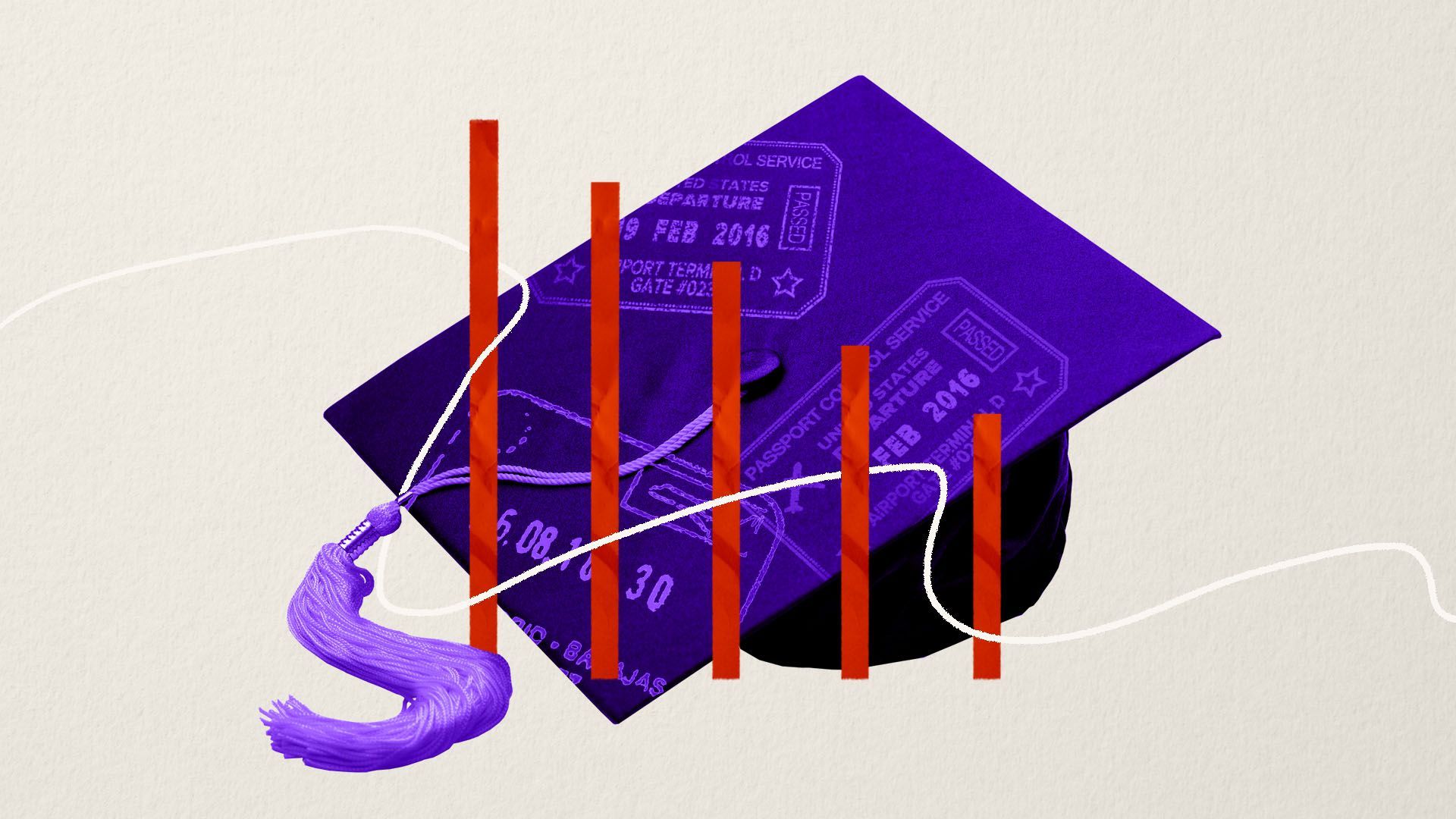College international student enrollments plunge
Add Axios as your preferred source to
see more of our stories on Google.

Illustration: Sarah Grillo/Axios
Colleges and universities are expecting the lowest foreign enrollment since World War II due to the pandemic’s travel restrictions and the Trump administration.
Why it matters: Foreign students are a vital source of revenue for U.S. universities, which are already suffering other revenue losses because of the pandemic.
- They are also an important pipeline for high-skilled labor. After graduation, many provide temporary work in high-skilled fields through the Optional Training Program (OPT) and H-1B visas.
Driving the news: U.S. Immigration Customs and Enforcement (ICE) reinforced its March guidance that new international students are not allowed into the country if their courses go online only.
- The State Department has also barred travelers coming directly from China, America's largest source of foreign students followed by India.
The big picture: U.S. colleges rely heavily on international students for their full tuition dollars and research prestige — most STEM programs have a majority of these students. Universities have already lost several revenue sources through athletics and housing.
- The American Council on Education estimated a 25% decline of international student enrollment this fall and a $25 billion revenue loss for education institutions.
- Schools don't have an official count yet for their fall enrollments, but many say their international students have deferred until the spring.
The state of play: U.S. embassies and consulate offices are just beginning to reopen, and both universities and students worry a backlog for visa approvals could persist into next year.
- Some students under a travel restriction may even try to enter the U.S. through a third country, quarantine for 14 days and then board a plane to the U.S.
- "We can never recommend that," Ravi Shankar, assistant vice provost and director of the International Services Office at the University of Rochester, tells Axios. "You have to make the decision that is best for you, but we say please take into consideration the safety and security when you’re considering going into a third country like Cambodia or Vietnam for example."
Enrollment offices are often the go-between for international students, helping them navigate other countries' travel restrictions and airline policies and providing health information to minimize fear of the virus, said Brian Ehrlich, vice president for enrollment management at the Florida Institute of Technology, whose student body is comprised of about 20% international students.
By the numbers: International students make up 6% of universities and colleges. They also contributed $41 billion to the U.S. economy in the 2018-19 school year, according to NAFSA.
- More than 458,000 jobs were created by international students supported by their spending last year.
- Unwelcoming immigration policies has been one of several reasons international student enrollment has been declining since 2016. The decline in recent years has cost the U.S. economy $11.8 billion and more than 65,000 jobs.
Trump's rhetoric and policies have already discouraged international students, said Ming Hsu Chen, a law professor at the University of Colorado, Boulder.
- "The public health situation taps into deep-seated fears of immigrants bringing disease and otherwise posing a threat to American society. This has been true with Ebola, HIV, SARS and other episodes in history. Another reason is the fact that the coronavirus came from abroad and lets people reflexively think of closing borders as the solution."
The bottom line: Educational institutions were already in a fragile state before the pandemic. Now this potential exodus endangers their pockets and prestige.
- The regulations "in the larger context will impact the ability and interest from international students to choose the United States as a destination for education. We’re losing the edge," Shankar said.
